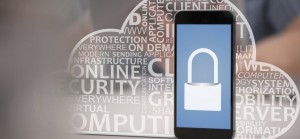Late to the Mobile Revolution? Here’s How to (Securely) Catch Up
— August 18, 2015Mobile devices have transformed the modern workplace, enabling employees to work from anywhere, at any time. While this flexibility has redefined productivity, it also introduces critical security challenges, especially for small and medium-sized businesses (SMBs). Unlike large enterprises with established IT frameworks, SMBs often lack the resources and strategies to manage mobile data security effectively.
With mobile application development becoming integral to business operations, SMBs must act swiftly to secure their systems and data. In Vietnam, software outsourcing companies such as S3Corp provide mobile and web development outsourcing services, helping businesses bridge the gap between mobility and security without excessive costs. This article examines the challenges SMBs face and offers practical solutions for ensuring robust data security in the mobile-first era.
The Challenges Facing SMBs
Limited IT Resources
Many SMBs operate with minimal IT infrastructure. Unlike large organizations that can afford comprehensive IT teams and advanced software, smaller businesses often rely on outdated or fragmented security measures. This creates vulnerabilities that hackers can exploit. Without adequate personnel or budgets to implement enterprise-level security, SMBs risk exposing sensitive data to cyberattacks.
Risks from BYOD Policies
The bring-your-own-device (BYOD) approach, widely adopted to cut costs and enhance employee flexibility, poses significant security threats. Personal devices used for work can introduce malware or viruses into the company’s network. For SMBs in Vietnam and beyond, monitoring and managing these devices without proper security protocols can lead to data breaches.
Sector-Specific Requirements
Industries such as healthcare, finance, and construction have stringent data confidentiality requirements. For instance, medical records or financial reports demand high levels of protection to comply with regulations and maintain client trust. SMBs in these sectors, especially those outsourcing tasks to smaller teams or freelancers, face challenges in ensuring consistent security protocols across all parties involved.
Human Error
Simple mistakes, such as accidental data deletion or mismanagement, remain one of the most common causes of data loss for SMBs. With limited backup solutions and no structured restoration plans, such incidents can disrupt operations and lead to significant financial losses.
The Solution: Manageability Platforms
To address these issues, SMBs require a solution that goes beyond traditional mobile device management (MDM). A manageability platform offers a comprehensive approach by integrating secure cloud-based management capabilities, tailored specifically for SMB needs. These platforms enable businesses to monitor, control, and protect their data efficiently, even with limited resources.
Customizable Features for SMBs
Every business has unique requirements. For SMBs, a manageability platform provides the flexibility to select specific features such as geo-fencing, location tracking, or application monitoring. This approach ensures that businesses pay only for what they need, reducing costs while meeting operational demands. For instance, a company managing a field sales team can use location tracking to ensure efficient deployment while protecting sensitive client data.
Outsourcing Security Management
Outsourcing security to specialized providers like S3Corp can further alleviate the burden on SMBs. By delegating specific tasks—such as attendance management or in-house surveillance—to experts, businesses ensure that security standards remain high without requiring extensive in-house expertise. Outsourcing also allows for regular monitoring and updates, minimizing the risk of security breaches and ensuring that systems remain current.
Cost-Effective Cloud Solutions
Cloud-based manageability platforms are particularly beneficial for SMBs. These solutions eliminate the need for costly hardware investments, reduce maintenance expenses, and require minimal IT expertise. By hosting data and security operations in the cloud, SMBs can achieve enterprise-grade protection at a fraction of the cost. Additionally, cloud platforms enable seamless updates, ensuring businesses remain protected against emerging threats.
Enhancing ROI
Investing in a manageability platform not only secures data but also boosts productivity. By monitoring non-work-related applications on employee devices, businesses can reduce distractions and improve output. Moreover, eliminating the need for device procurement and associated data plans frees up resources for other critical areas. For SMBs in competitive markets, such as Vietnam’s software development sector, this can translate into significant long-term gains.
The Path Forward
The shift to mobile workspaces is no longer optional. SMBs must adapt by adopting solutions that address both mobility and security. Companies like S3Corp, specializing in mobile and web development outsourcing, provide the expertise needed to implement cost-effective manageability platforms. By prioritizing data protection and leveraging modern tools, SMBs can compete effectively in a digital-first landscape while safeguarding their operations from potential threats.
In a world dominated by mobile devices, the key to SMB success lies in embracing technology that ensures security without compromising flexibility. Manageability platforms, combined with strategic outsourcing partnerships, offer a sustainable way forward for businesses aiming to thrive in an increasingly connected environment.







